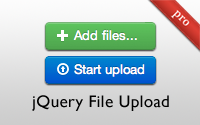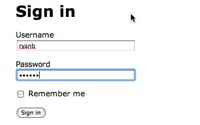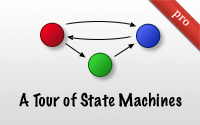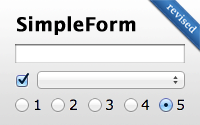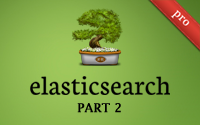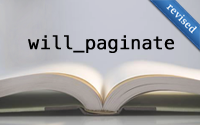Categories
- Active Record
- Active Resource
- Active Support
- Administration
- Ajax
- APIs
- Authentication
- Authorization
- Background Jobs
- Caching
- Code Walkthrough
- Controllers
- Debugging
- Deployment
- eCommerce
- Forms
- Mailing
- Models
- Performance
- Plugins
- Production
- Rack
- Rails 2.0
- Rails 2.1
- Rails 2.2
- Rails 2.3
- Rails 3.0
- Rails 3.1
- Rails 3.2
- Rails 4.0
- Refactoring
- Routing
- Search
- Security
- Testing
- Tools
- Views
Active Model Serializers
The ActiveModel::Serializers gem can help you build JSON APIs through serializer objects. This provides a dedicated place to fully customize the JSON output.
(10 minutes)
jQuery File Upload
Here you will learn how to upload multiple files over ajax using jQuery File Upload. I start with the basic functionality and customize it to fit the user interface.
(13 minutes)
More on Twitter Bootstrap
This episode continues on the Twitter Bootstrap project showing how to display flash messages, add form validations with SimpleForm, customize layout with variables, and switch to using Sass.
(12 minutes)
Customizing Devise
Here we dive deeper into Devise by customizing how the views, routing, validations, and authentication works.
(7 minutes)
A Tour of State Machines
Here I show how three popular state machine gems can be used to clean up a list of boolean/datetime fields. I also show a custom solution which keeps track of the history of events.
(12 minutes)
SimpleForm (revised)
Easily generate complex forms with SimpleForm. Here I show how to convert bulky markup into a concise list of fields, customize it by passing options, and add error handling.
(9 minutes)
ElasticSearch Part 2
This final part on ElasticSearch and Tire will show how to make more complex search queries, customize the indexing, and add facets.
(16 minutes)
will_paginate (revised)
Almost every Rails application needs pagination, and will_paginate is a great way to go. Here I show you how to set it up, customize the way it looks, and see how it compares with Kaminari.
(6 minutes)
Sharing Mustache Templates
Mustache is a simple, logic-less templating language which allows you to use the same template for both Ruby and JavaScript. See how to set it up with a custom template handler in this episode.
(17 minutes)
Markdown with Redcarpet
Redcarpet is an easy-to-use gem which interprets Markdown. Here I show how to customize it and add syntax highlighting through Pygments and Albino.
(6 minutes)


